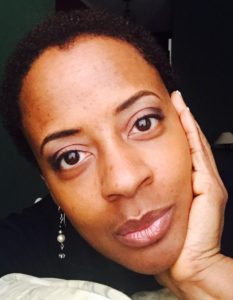 This is the third in a blog series from participants in Hope for the Future (HFF), a gathering of people of color serving in leadership positions across Mennonite Church USA. HFF gatherings began in 2012 and initially served to create space for mutual support among people of color in Mennonite Church USA institutions and agencies. In recent years there’s been an increased urgency to see change within our organizations — to see intentionality among our institutions to make space for people of color — culturally, interpersonally, systemically. In 2015, white leaders across the denomination were invited to the gathering as participants engaged in discussions around power. HFF 2016 focused on Human Resources: strategy, policy and best practices that together create interculturally competent organizations.
This is the third in a blog series from participants in Hope for the Future (HFF), a gathering of people of color serving in leadership positions across Mennonite Church USA. HFF gatherings began in 2012 and initially served to create space for mutual support among people of color in Mennonite Church USA institutions and agencies. In recent years there’s been an increased urgency to see change within our organizations — to see intentionality among our institutions to make space for people of color — culturally, interpersonally, systemically. In 2015, white leaders across the denomination were invited to the gathering as participants engaged in discussions around power. HFF 2016 focused on Human Resources: strategy, policy and best practices that together create interculturally competent organizations.
Colleen Brockington is in her 14th year serving as the Administrator of Precious Life Ministries and is an advocate for children with special needs. She has over 25 years of experience working in children’s ministry and is a member of Norristown New Life Nueva Vida Mennonite Church. Colleen lives in Norristown, Pennsylvania and is the mother of two exceptional boys, Marques and Matthias.
As I prepared to attend my second Hope for the Future conference, I reflected on the desired outcome of the 2015 gathering, and I was reminded of the intense emotional engagement, hours of discussion and sharing about how power is disseminated within Mennonite agencies. I wondered if the leadership of Mennonite Church USA had indeed responded to our call to action which was to employ and empower people of color to fulfill their job responsibilities and provide equal access to the necessary resources.
My real question being, had anything changed? I looked forward to an update.
During the 2016 conference, I thought it necessary to take a step back and revisit the question of the true mission and vision of Hope for the Future. Interestingly, I found that many of my fellow participants also wrestled with this same question.
I was disappointed to discover the discussions and dynamics within most agencies had not changed.
My overwhelming concern was, with the time and emotional energy we invested in these discussions to flesh out plans and strategies, can we be assured our ideas are being taken seriously? Or are we going through the motions, participating in an annual “reunion” of sorts, with no influence in systemic change and no agency accountability?
Despite a lack of equitable progress, I felt extremely blessed I was able to reconnect with brothers and sisters of color, forming personal relationships, learning about their ministries and important work within the Mennonite church. It was apparent God knew my need for engagement and was already at work creating connections on my behalf, especially since I am self-employed and therefore my access to the culture within these agencies is limited at best.
I believe one of the ways to ensure progress is to intentionally work in a relational way, which is why it is vital for agencies to engage with integrity by maintaining genuine relationships with people of color and creating open spaces for communication and access. However, who determines what levels of access are fair and just?
So I am left thinking about what we can do as change agents to benefit the future generations.
Being considered part of the “next generation” of people of color who are also Mennonite, I am tasked with maintaining what little momentum we have experienced over the last 30 years or more. I am filled with a yearning to stay the course, to not to be side-tracked by regurgitating conversations which have continued to stifle hopes of progress. This thought process only leads to more questions, specific to agency accountability and action. As people of color, are our experiences taken seriously and valued as a priority at the highest level? More importantly, how can we hold our “white allies” and / or “freedom riders” accountable to influence measurable change and speak on our behalf at times of systemic or blatant injustice?
I will admit, the prospect of justice as it relates to power appears daunting. So many unanswered questions, with the journey murky at best.
However, knowing this is the work God has called us to as his people, I choose to feel hopeful.
Knowing I bring a different perspective, influenced by legacy, truly believing God is able. For only He can continuously renew our spirit and guide us through this arduous journey for his glory.

